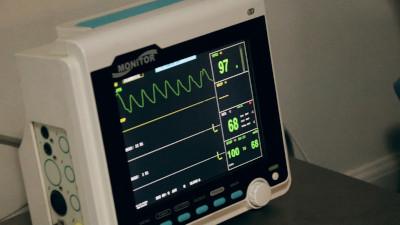What is IRS Form 8283?
The Internal Revenue Service allows individuals and organizations to claim tax deductions for non-cash charitable contributions. For example, if you choose to donate unneeded equipment, vehicles, machinery, furniture, or other personal property, you can deduct the value of this property on your federal income tax return.
In order to claim a deduction, you must file IRS Form 8283 with your annual tax return (unless the total deduction claimed is less than $500). If the total deduction claimed exceeds $5,000, then the IRS requires that a valuation be conducted by a qualified appraiser. The appraiser’s descriptions, value estimates, and signature are documented within Form 8283.
A professional appraisal takes all aspects of donated property into account, such as its make, model, age, condition, operating/use hours, specifications, and modifications. Factors such as the original cost of the items, their depreciation rates, any income they generate, their location, and market supply and demand are also taken into consideration to determine the property’s value with the highest possible confidence.
What non-cash charitable contributions are eligible?
There are few limitations on the kinds of non-cash contributions that are eligible for an income tax deduction. However, the appraiser required to value the contribution will vary depending on what sort of property it is.
Appraisal-Masters is certified to appraise most types of tangible personal property, especially property and equipment used for business and industrial purposes. Common examples include the following:
Appraisal-Masters is NOT qualified to appraise the following:
Land
Real Estate
Fine Art
Securities
What happens during a non-cash charitable contribution appraisal?
A personal property valuation (also called an appraisal) is a well-regimented process consisting of several distinct steps.
Pre-Inspection Planning
The appraiser speaks with the client to determine the scope and purpose of the appraisal. The appraiser explains the requirements and procedures for filing IRS Form 8283 and gathers any relevant documents, such as a list of items to be appraised and their histories.Inspection
The appraiser inspects the items that have been or will be donated, gathering essential information like their make, model, age, condition, and usage history. The inspection is often conducted in person, but it can also be done virtually via a desktop appraisal.Market Research
The appraiser gathers market and industry data to determine the current supply and demand dynamics for the items. They consider factors such as industry trends, location, obsolescence, and the availability of comparable items in the market.Data Analysis
The appraiser applies appropriate valuation methods to determine the value of the items. They may study recent sales prices of similar items, calculate the revenue the items generate for their owner, or estimate the cost of replacing the items.Adjustments
The appraiser makes adjustments to their valuation to account for factors such as item condition, age, and market fluctuations. This fine-tunes the valuation to reflect the items’ unique characteristics.Appraisal Report
The appraiser prepares a written report summarizing the data gathered, the appraisal methodologies used, and the conclusions and opinions reached. This document provides a comprehensive and defensible record of the appraisal, should the IRS request additional information. The appraiser additionally completes the appropriate sections of Form 8283 on your behalf and explains what else you must do before filing your income tax return.
Frequently asked questions about non-cash charitable contributions
How long does it take to get an appraisal?
The time required to complete an appraisal will vary depending on the quantity and complexity of the items to be appraised. However, most appraisals can be completed within 1–3 days. Appraisals that require extensive market research or travel to remote locations can take longer.
How much does an appraisal cost?
The cost of an appraisal may vary greatly depending on the amount and complexity of the items that need to be valued. As such, we typically refrain from giving an estimate prior to consultation in order to not set unrealistic expectations. However, we can assure you that the cost of conducting an appraisal pales in comparison to the income tax deductions it can facilitate. Read more about the costs and fees associated with an appraisal.
Is a separate Form 8283 needed for each non-cash donation?
Yes, a separate Form 8283 is required for each non-cash donation unless the items are of the same type or category. For example, multiple vehicles, multiple pieces of furniture, or multiple manufacturing machines can be claimed as a single group of items on Form 8283. Multiple groups of dissimilar items (e.g. a group of vehicles and a group of manufacturing machines) must be claimed separately, on separate forms.
Who is considered a qualified appraiser for IRS Form 8283?
A qualified appraiser is someone who is knowledgeable and experienced in appraising the type of property being donated, meets certain professional standards, and regularly prepares appraisals. Appraisal-Masters’ appraisers meet these requirements for most categories of personal property excluding land, real estate, fine art, and securities.
Can I use the same appraisal for multiple years of deductions?
No, a new appraisal is generally required for each tax year in which a deduction is claimed for a donated item.
Maximize your tax deduction with a non-cash charitable contribution appraisal from Appraisal-Masters
Don’t miss out on claiming your deduction for non-cash contributions. Appraisal-Masters is your trusted partner for accurate, IRS-compliant appraisals.
Our experienced appraisers will empower you to complete Form 8283 and file your taxes with confidence. Contact us today to request a no-obligation appraisal consultation!







